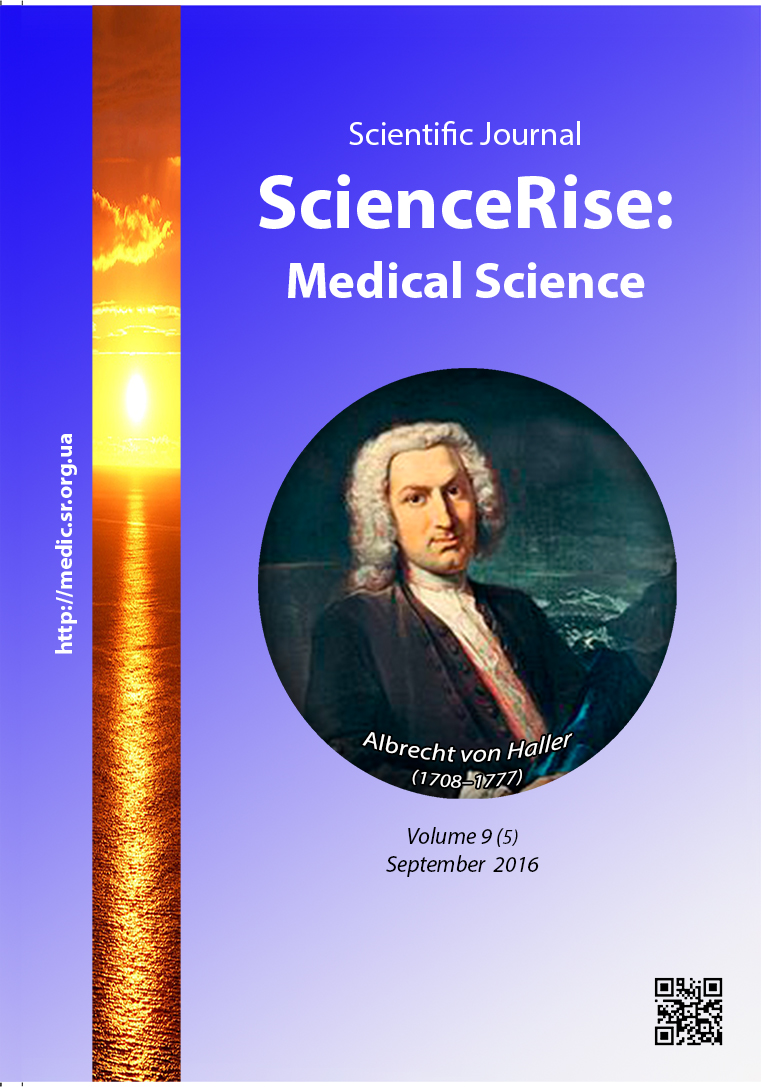The analysis of organizational features of psychological help for cancer patients
DOI:
https://doi.org/10.15587/2519-4798.2016.77849Keywords:
medical-psychological help, psychological education, psychological correction, cancer patients, psycho-oncology, psychic health, oncologyAbstract
The ideas and internal setting of patients about psychological help mainly provide the parameters and specificity of organization and realization of medical-psychological help.
Aim of research – to define the features of organization of medical-psychological help for cancer patients on the base of study of their needs and settings as to psychological influences.
Contingent and methods of research. The interrogation of 245 cancer patients (134 women and 111 men) about the need for medical psychological help was realized on the base of Kyiv city clinical oncological center during 2012–2015 using the specially elaborated questionnaire. In the process of analysis of the received data patients were divided in 3 groups, depending on the stage of treating process: group 1 (G1, n=80) included patients at the diagnostic stage, group 2 (G2, n=86) – primary patients, 3 group (G3, n=99) – patients at the repeated visits as a result of relapse or continuation of disease.
Results. In cancer patients at the different stages of treating process and with different stages of the course of pathology took place the psychological features that caused the differentiation of clinical tasks and forms of medical-psychological help. The important factor was the accessibility of psychological help: information for patients about the presence of specialist on psychic health, the schedule of psychological arrangements, the presence of psycho-educative materials directly in departments. Taking into account the fact that the people, who surround patient and closely communicate with him/her, also undergo the high distress level, there was the practical necessity for elaboration of medical-psychological arrangements for the relatives and friends of patients, for the medical staff. The involvement of patients into participation in psychological arrangements can be raised by the modeling of motivational factors.
Conclusion. Medical-psychological activity in oncological medical institution must be the complex one, connected with the tasks of clinical practice, must help to renew the psychic health of patients, to form in them the adaptive attitude and effective strategy of behavior as to antitumor treatment
References
- Fedorenko, Z. P., Gulak, L. O., Mihaylovich, Y. J. et. al.; Kolesnik, O. O. (Ed.) (2015). Cancer in Ukraine 2013–2014 years. Kiev: National Cancer Institute. Available at: http://www.ncru.inf.ua/publications/BULL_16/index.htm
- Savin, A. I., Volodin, B. Y. (2015). Features of psychogenic cause mental disorder and psychological character is tics of cancer patients with different tumor localization (approach to the problem). EruditioJuvenium, 3, 82–86.
- Bambauer, K. Z., Zhang, B., Maciejewski, P. K., Sahay, N., Pirl, W. F., Block, S. D., Prigerson, H. G. (2006). Mutuality and specificity of mental disorders in advanced cancer patients and caregivers. Social Psychiatry and Psychiatric Epidemiology, 41 (10), 819–824. doi: 10.1007/s00127-006-0103-x
- Kaygorodova, N. Z., Lyubimova, O. M., Petrova, V. D., Paramonova,O. V. (2014). Some of the psychological characteristics of cancer patients due to psychocorrection activity. News of Altai State University, 2 (2), 22–26.
- Markova M. V., Piontkovska, O. V., Kuzhel, I. R. (2012). State of art and development to modern psycho oncology. Ukrainian Bulletin of psycho neurology, 20 (4), 86–91.
- Grassi, L., Biancosino, B., Marmai, L., Rossi, E., Sabato, S. (2007). Psychological Factors Affecting Oncology Conditions. Advances in Psychosomatic Medicine, 57–71. doi: 10.1159/000106797
- Kuchin, Y. L. (2015). Problems of delirium in cancer patients. Health of Ukraine, 1. Available at: http://health-ua.com/
- Holland, J. C., Breitbart, W. S., Jacobsen, P. B. et. al. (2015). Psycho-Oncology. Oxford University press, 772.
- Nielsen, M. K., Neergaard, M. A., Jensen, A. B., Bro, F., Guldin, M.-B. (2016). Psychological distress, health, and socio-economic factor sin caregivers of terminally ill patients: a nationwide population-based cohort study. Supportive Care in Cancer, 24 (7), 3057–3067. doi: 10.1007/s00520-016-3120-7
- Rumpold, T., Schur, S., Amering, M., Kirchheiner, K., Masel, E. K., Watzke, H., Schrank, B. (2015). Informal caregivers of advanced-stage cancer patients: Every second is at risk for psychiatric morbidity. Supportive Care in Cancer, 24 (5), 1975–1982. doi: 10.1007/s00520-015-2987-z
- Sudakova, O. S. (2012). Specificity of emotional burnout syndrome in medical oncologists. Medical Psychology, 4, 92–96.
- Rasmussen, V., Turnell, A., Butow, P., Juraskova, I., Kirsten, L., Wiener, L. et. al. (2015). Burnout among psychosocial oncologists: an application and extension of the effort-reward imbalance model. Psycho-Oncology, 25 (2), 194–202. doi: 10.1002/pon.3902
Downloads
Published
How to Cite
Issue
Section
License
Copyright (c) 2016 Інна Романівна Мухаровська

This work is licensed under a Creative Commons Attribution 4.0 International License.
Our journal abides by the Creative Commons CC BY copyright rights and permissions for open access journals.
Authors, who are published in this journal, agree to the following conditions:
1. The authors reserve the right to authorship of the work and pass the first publication right of this work to the journal under the terms of a Creative Commons CC BY, which allows others to freely distribute the published research with the obligatory reference to the authors of the original work and the first publication of the work in this journal.
2. The authors have the right to conclude separate supplement agreements that relate to non-exclusive work distribution in the form in which it has been published by the journal (for example, to upload the work to the online storage of the journal or publish it as part of a monograph), provided that the reference to the first publication of the work in this journal is included.









